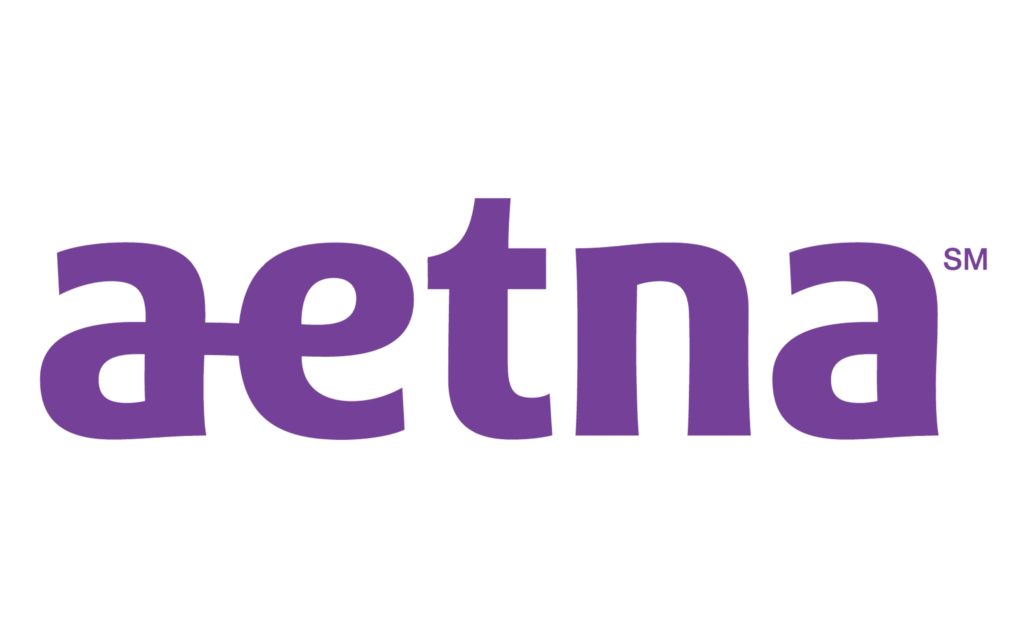Why Choose Carolina Recovery Solutions
Carolina Recovery Solutions in Asheville, NC offers comprehensive addiction treatment services for individuals seeking drug rehab, drug detox, and addiction treatment services. The facility is dedicated to providing high-quality care and support to those struggling with addiction.
Comprehensive Addiction Treatment Services
Carolina Recovery Solutions offers a wide range of addiction treatment services tailored to meet the individual’s specific needs. These services may include counseling, therapy, medication management, and support groups. By offering a comprehensive approach to addiction treatment, Carolina Recovery Solutions addresses the physical, emotional, and psychological aspects of alcohol addiction. This holistic approach increases the chances of a successful recovery.
Expert Team of Professionals
Carolina Recovery Solutions boasts an expert team of professionals who are highly trained and experienced in the field of addiction treatment. The team includes licensed therapists, counselors, and medical professionals who are dedicated to providing compassionate and evidence-based care to their clients. With their expertise and knowledge, the team at Carolina Recovery Solutions creates a supportive and nurturing environment for individuals seeking help for alcohol addiction.
By choosing Carolina Recovery Solutions, individuals can benefit from the expertise and guidance of these professionals who are committed to helping clients overcome their addiction and achieve lasting recovery.
Carolina Recovery Solutions in Asheville, NC is a trusted provider of outpatient alcohol treatment services. With their comprehensive addiction treatment services and a team of dedicated professionals, they strive to make a positive impact on the lives of individuals seeking help for alcohol addiction.
Outpatient Alcohol Treatment
When it comes to alcohol addiction treatment, outpatient alcohol treatment is an option that provides individuals with the flexibility to receive therapy and support while living at home. This type of treatment program, as described by Addiction Center, allows individuals to continue their daily activities, such as work or school, while receiving the necessary treatment for their alcohol addiction.
What is Outpatient Alcohol Treatment?
Outpatient alcohol treatment is a form of addiction treatment that does not require individuals to reside in a treatment facility. Instead, they visit the treatment center for scheduled therapy sessions, counseling, and support groups. This type of treatment is typically recommended for individuals with mild to moderate alcohol addiction who have a stable home environment and a strong support system in place.
Outpatient treatment programs, as explained by Addiction Center, often include a combination of individual counseling, group therapy sessions, educational sessions, and support groups. These services aim to help individuals overcome their alcohol addiction by providing them with the necessary tools, coping strategies, and support to achieve lasting recovery.
Benefits of Outpatient Treatment
Outpatient alcohol treatment offers several advantages for individuals seeking alcohol addiction treatment. One significant benefit is the flexibility it provides. Unlike inpatient treatment, outpatient treatment allows individuals to continue their daily responsibilities, such as work, school, and family obligations. This flexibility enables individuals to maintain their routines and responsibilities while receiving the necessary care for their alcohol addiction.
Another advantage of outpatient treatment is its affordability. Compared to inpatient treatment, outpatient treatment is generally less expensive, making it a more accessible option for individuals seeking alcohol addiction treatment. This affordability allows individuals to receive the care they need without incurring excessive financial burdens.
Furthermore, outpatient treatment can be an effective form of treatment for individuals with mild to moderate alcohol addiction. It provides a supportive environment where individuals can address the underlying causes of their addiction, develop coping strategies, and learn relapse prevention techniques.
In summary, outpatient alcohol treatment offers individuals the opportunity to receive effective addiction treatment while maintaining their daily routines and responsibilities. With a range of services tailored to meet individual needs, outpatient treatment can provide the necessary support, therapy, and education to help individuals overcome their alcohol addiction and achieve lasting recovery.
The Importance of Choosing the Right Treatment Option
When it comes to addressing alcohol addiction, selecting the appropriate treatment option is vital for successful recovery. Carolina Recovery Solutions in Asheville, NC provides a range of addiction treatment services and is committed to helping individuals overcome their challenges. Understanding the factors to consider and the difference between outpatient and inpatient treatment can guide individuals in making the right choice for their recovery journey.
Factors to Consider
Several factors should be taken into account when choosing a treatment option for alcohol addiction. These factors include:
- Severity of Addiction: The level of addiction plays a significant role in determining the appropriate treatment. Outpatient treatment is generally suitable for individuals with mild to moderate alcohol addiction. For those with severe addiction or those who require 24/7 support and supervision, inpatient treatment may be more suitable.
- Home Environment and Support System: Individuals with a stable home environment and a strong support system in place may find outpatient treatment beneficial. The support of family and friends can greatly contribute to the recovery process.
- Affordability: Outpatient treatment is generally less expensive than inpatient treatment, making it a more affordable option for many individuals seeking alcohol addiction treatment. The accessibility of outpatient treatment allows individuals to receive the necessary care without incurring excessive financial burdens.
- Flexibility: Outpatient treatment provides individuals with the flexibility to continue working or attending school while receiving treatment for alcohol addiction. This flexibility allows individuals to maintain their everyday responsibilities while simultaneously focusing on their recovery.
Outpatient vs. Inpatient Treatment
Outpatient treatment and inpatient treatment are two primary options for addressing alcohol addiction. Understanding the differences between these treatment approaches can help individuals make an informed decision:
| Treatment Option | Description |
|---|---|
| Outpatient Treatment | Outpatient rehab is a flexible treatment option that allows individuals to continue their daily activities while receiving treatment for alcohol addiction. It typically involves attending counseling, therapy, medication management, and support groups tailored to meet the individual’s specific needs. Outpatient treatment is more accessible and affordable compared to inpatient treatment, making it an attractive option for many individuals. However, it may not be suitable for everyone, particularly those with severe alcohol addiction or those who require 24/7 support and supervision. |
| Inpatient Treatment | Inpatient treatment involves residing at a treatment facility for a specified duration, typically ranging from a few weeks to several months. Individuals receive round-the-clock care, including therapy, counseling, and medical support. Inpatient treatment is recommended for individuals with severe alcohol addiction or those who require a highly structured and supervised environment to achieve sobriety. While it provides a comprehensive and immersive treatment experience, it may not be feasible for everyone due to factors such as cost or personal commitments. |
Choosing between outpatient and inpatient treatment depends on individual circumstances and the level of support and care required. Consulting with professionals at Carolina Recovery Solutions can help individuals determine the most appropriate treatment option for their specific needs.
By considering the factors mentioned above and understanding the distinctions between outpatient and inpatient treatment, individuals can make an informed decision that aligns with their goals for recovery. Carolina Recovery Solutions offers comprehensive addiction treatment services, ensuring that individuals receive the right treatment option tailored to their unique needs.
Services Offered at Carolina Recovery Solutions
Carolina Recovery Solutions, located in Asheville, NC, offers a comprehensive range of addiction treatment services to individuals seeking outpatient alcohol treatment. Their dedicated team of professionals is committed to providing effective and personalized care to support individuals on their journey to recovery.
Individual Counseling
Individual counseling is a key service offered at Carolina Recovery Solutions. Through one-on-one sessions with a qualified counselor or therapist, individuals have the opportunity to address their unique challenges and goals in a private and supportive environment. During these sessions, individuals can explore the underlying factors contributing to their alcohol addiction, gain insight into their behaviors and patterns, and develop coping strategies to overcome cravings and triggers.
The personalized nature of individual counseling allows for tailored treatment plans that align with each person’s specific needs and circumstances. It provides a safe space for individuals to express their concerns, fears, and emotions, while receiving guidance and support from a trained professional. The goal of individual counseling is to help individuals develop the necessary skills and mindset to maintain sobriety and achieve long-term recovery.
Group Therapy and Support
Group therapy and support sessions are another vital component of the services offered at Carolina Recovery Solutions. These sessions provide individuals with the opportunity to connect with others who are going through similar experiences, fostering a sense of community and understanding. Group therapy offers a supportive and non-judgmental space where individuals can share their experiences, challenges, and successes in their journey towards sobriety.
Participating in group therapy sessions allows individuals to gain valuable insights from their peers, learn from different perspectives, and develop a network of support. It can enhance self-awareness, build interpersonal skills, and provide a sense of accountability. Group therapy also offers a platform for individuals to practice new coping strategies, receive feedback, and celebrate milestones together.
The combination of individual counseling and group therapy at Carolina Recovery Solutions ensures a comprehensive and holistic approach to outpatient alcohol treatment. By addressing both the individual’s unique needs and the benefits of a supportive community, individuals can develop the tools and resilience needed to overcome alcohol addiction and build a healthier future.
Remember, it’s important to consult with professionals at Carolina Recovery Solutions to determine the most suitable treatment plan for your specific situation.
Success Rates and Effectiveness of Outpatient Treatment
When considering treatment options for alcohol addiction, it is important to understand the success rates and effectiveness of outpatient treatment programs. While outpatient treatment programs may have lower success rates compared to inpatient programs, they can still be a valuable and effective option for individuals seeking recovery.
Factors Influencing Success Rates
The success of outpatient treatment programs is influenced by various factors, including the individual’s level of commitment, motivation, and support system outside of the treatment facility (Harmony Place). It is crucial for individuals to actively engage in their treatment, follow the recommended plan, and utilize the coping skills and strategies learned during therapy sessions.
A strong support system, consisting of family, friends, and community resources, can significantly contribute to the success of outpatient treatment. Having a network of people who are understanding, encouraging, and supportive can provide the necessary encouragement and accountability throughout the recovery journey.
Evidence-Based Approaches
Outpatient alcohol treatment programs can employ evidence-based approaches to effectively address addiction and support long-term sobriety. These approaches may include:
- Cognitive-Behavioral Therapy (CBT): This therapy focuses on identifying and changing negative thought patterns and behaviors associated with alcohol addiction. It helps individuals develop healthier coping mechanisms and strategies to manage cravings and triggers.
- Motivational Interviewing: This technique aims to enhance an individual’s motivation to change by exploring their personal values, goals, and aspirations. It helps individuals identify and resolve ambivalence towards alcohol use and develop intrinsic motivation for recovery.
- Relapse Prevention: Outpatient treatment programs often provide relapse prevention strategies and skills training to help individuals recognize and manage high-risk situations. By learning effective coping strategies, individuals can prevent relapse and maintain their sobriety.
Combining these evidence-based approaches with ongoing therapy and participation in support groups, such as Alcoholics Anonymous (AA), can further enhance the effectiveness of outpatient treatment for alcohol addiction. These additional forms of support can provide individuals with the tools, guidance, and peer support necessary for sustained recovery.
It is important to note that the duration of outpatient alcohol treatment programs can vary, ranging from a few weeks to several months, depending on the individual’s needs and progress. The treatment team will work closely with the individual to develop a personalized treatment plan that addresses their unique circumstances and goals.
While outpatient treatment may not be recommended for individuals with severe alcohol addiction or those requiring intensive medical supervision, it can be a suitable option for individuals with mild to moderate alcohol addiction who have a stable living environment and a strong support system. Successful outcomes can be achieved when individuals actively engage in treatment, utilize evidence-based approaches, and have the necessary support in place to sustain their recovery efforts.
Finding the Right Treatment for You
When seeking alcohol treatment, it’s essential to find the right level of care and support that suits your individual needs. Carolina Recovery Solutions in Asheville, NC offers a range of addiction treatment services, including outpatient alcohol treatment. Let’s explore the different levels of care in alcohol treatment and the importance of mutual support groups.
Levels of Care in Alcohol Treatment
According to the American Society of Addiction Medicine, there are four basic levels of care or intensity for alcohol treatment:
- Outpatient Treatment: Outpatient treatment is a type of addiction treatment that is considered more intensive than peer-support groups and self-help meetings, but has fewer resources than inpatient treatment centers. It is usually offered 1-2 times per week for 3 hours each session (Canada Drug Rehab). Outpatient treatment allows clients to go home at the end of the day, providing them with a higher level of “freedom” compared to residential treatment programs. Carolina Recovery Solutions offers comprehensive outpatient alcohol treatment services, providing individuals with the flexibility to maintain their regular routines while receiving the necessary support and care.
- Intensive Outpatient Treatment: Intensive outpatient treatment involves more structured and frequent sessions compared to regular outpatient treatment. It typically includes a combination of individual counseling, group therapy, and educational sessions. This level of care is suitable for individuals who require a higher level of support and accountability while still being able to live at home and attend to their daily responsibilities.
- Partial Hospitalization Program (PHP): A partial hospitalization program provides a more intensive level of care than outpatient treatment. Individuals in a PHP attend treatment sessions during the day and return home in the evenings. This level of care is beneficial for individuals who need more structure and support but do not require 24/7 supervision.
- Inpatient Treatment: Inpatient treatment, also known as residential treatment, is the most intensive level of care. Individuals reside in a treatment facility and receive round-the-clock support and supervision. Inpatient treatment programs generally have more resources and services than public and nonprofit facilities. However, it’s important to note that outpatient treatment can be just as effective for many individuals, especially when provided by experienced professionals.
Mutual Support Groups
In addition to professionally led treatment, many people benefit from participating in mutual support groups. These groups offer a sense of community, understanding, and shared experiences. They provide a safe and non-judgmental space where individuals can discuss their challenges, receive support, and learn from others who have faced similar struggles. Some well-known mutual support groups for alcohol treatment include Alcoholics Anonymous (AA) and SMART Recovery.
Carolina Recovery Solutions recognizes the importance of mutual support groups in the recovery process. They can assist you in finding the right group that aligns with your needs and preferences. Trying different groups can help you find the one that resonates with you and provides the support you require on your journey to recovery.
When seeking alcohol treatment, it’s crucial to consider the different levels of care available and choose the one that best suits your unique situation. Additionally, looking for evidence-based approaches and seeking reputable treatment providers, such as Carolina Recovery Solutions, can help ensure you receive high-quality care that is backed by research and professional expertise. Remember, there are various options available, and finding the right treatment and support is a significant step towards recovery.







